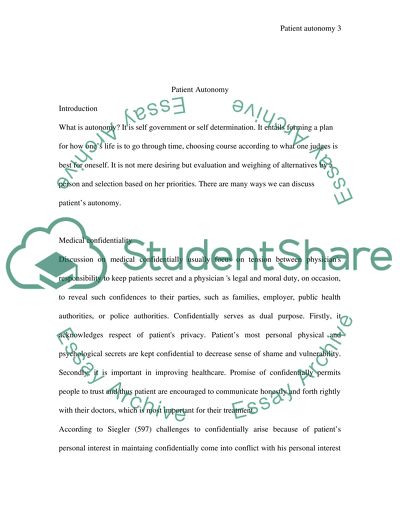Cite this document
(“Patient Autonomy Essay Example | Topics and Well Written Essays - 2000 words”, n.d.)
Retrieved from https://studentshare.org/miscellaneous/1530296-patient-autonomy
Retrieved from https://studentshare.org/miscellaneous/1530296-patient-autonomy
(Patient Autonomy Essay Example | Topics and Well Written Essays - 2000 Words)
https://studentshare.org/miscellaneous/1530296-patient-autonomy.
https://studentshare.org/miscellaneous/1530296-patient-autonomy.
“Patient Autonomy Essay Example | Topics and Well Written Essays - 2000 Words”, n.d. https://studentshare.org/miscellaneous/1530296-patient-autonomy.


